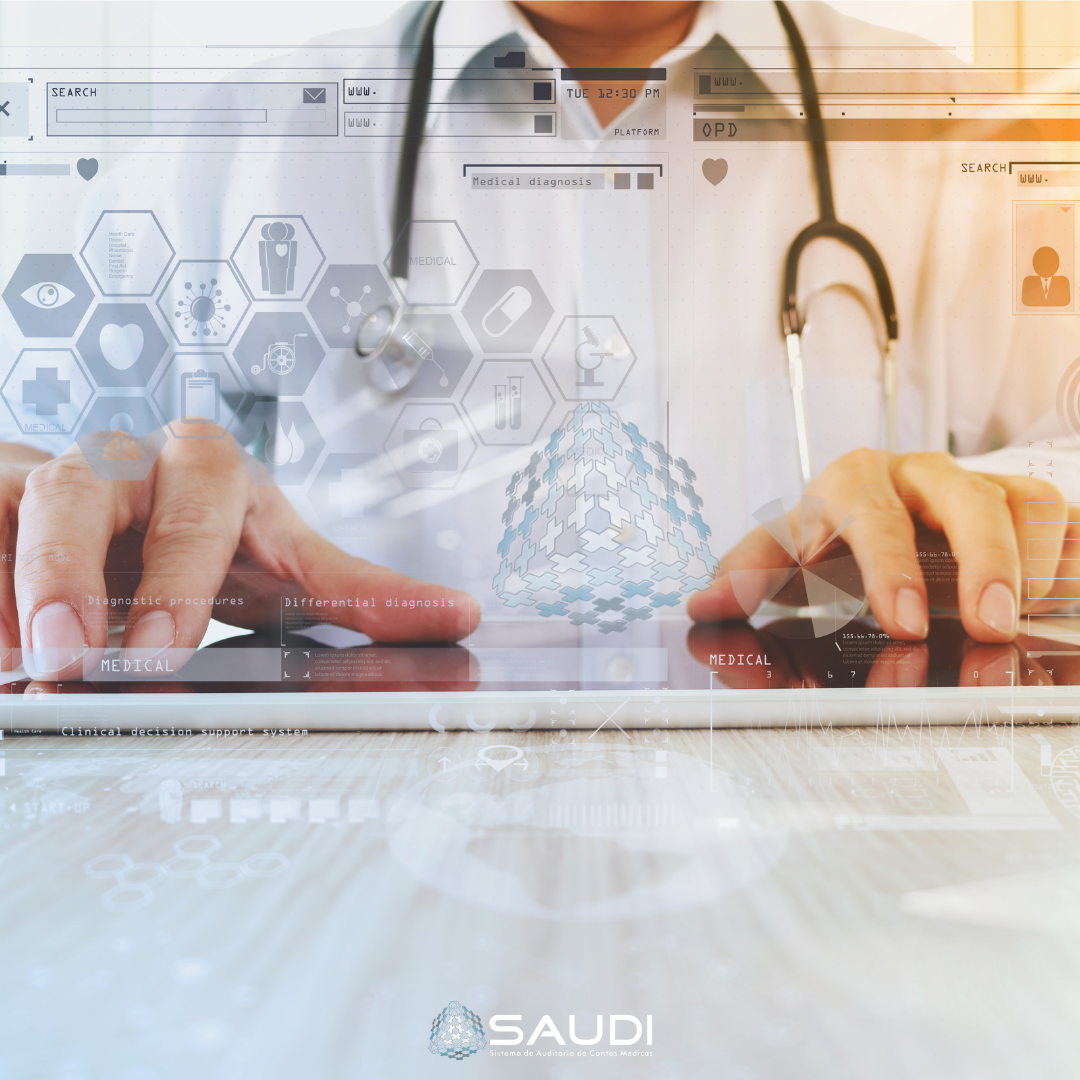Today we are going to present the most used technological trends in the healthcare sector, where it is possible to follow significant changes every year. In this way, leading software and solutions companies are already redefining themselves with digital transformation, applied to their main functional areas with a customer-centric approach.
Continue reading and check out the technologies that are already trending in the healthcare sector:
Artificial intelligence
The development of Artificial Intelligence (AI) machines – which can process information and provide decision-making data in a similar way to what a human does – has given rise to an entirely new sector of innovative technologies in healthcare. AI applications can improve the speed and accuracy of the diagnostic process, for example.
Analysis can also identify concerning developments and allow professionals to begin looking at possible approaches to early treatment. Machine learning algorithms are also used to safely explore chemical and biological interactions in the drug discovery process, bringing new medicines to market faster.
The potential of AI and other technologies to create synergies that drive digital transformation in healthcare is immense. Mobile devices and systems will increase the size of data sets available for AI software to analyze. The large ecosystem is expected to become significantly more interdependent as the industry advances.
Chatbots
Handling routine queries using AI-backed messaging and voice systems can help organizations save costs. In healthcare, the ability to address easily diagnosable problems allows professionals to focus on issues that may require a doctor's full attention. Patients also benefit from the feeling that simply questions have been answered.
Chatbots can also be beneficial for practices that deal with older patients. A character can be created to serve as an assistant to provide friendly reminders. By connecting with other technologies such as analytics and AI, the assistant can even alert you to potential drug interactions.
Chatbots are already revolutionizing the business world and are also expected to be a big part of the digital transformation in healthcare. You need to pay attention to some of the risks. Automated systems should not be viewed as a substitute for expert opinion, especially when risks include threats to patients. Any chatbot system will be subject to the same rules that govern the rest of the industry.
Blockchain
Blockchain is a distributed system for recording and storing transactional records that, by its nature, can increase data security and privacy. With blockchain, transaction records are stored and distributed across all network participants rather than in a central location, creating an immutable environment perfect for locking down health records and confidential patient data.
The healthcare sector is waking up to the opportunities that blockchain can bring. Because blockchain is a model that promotes data sharing, the technology can help doctors and other healthcare providers make better, more accurate diagnoses and prescribe more effective treatments.
Together, these benefits can help reduce healthcare costs while increasing patient satisfaction. Furthermore, blockchain technology allows professionals to share their data without fear of compromising data security as blockchain data is immutable and all changes made to the data can be tracked.
Blockchain has a multitude of uses in the healthcare sector, in addition to diagnosis and treatment, from controlling patient medication to protecting digital signatures in electronic records from health plan operators. Each has the potential to disrupt traditional technologies, with better results for data security and access.
Paperless
Digitization optimizes everything from the search for information to business procedures. It contributes to better management of actions, facilitates tasks, access to medical records, reduces the number of medical errors, speeds up the exchange of information between institutions and increases employee productivity. Consequently, it generates speed in decision making.
Through a digital database, it is possible to better view each patient's history, check the tests requested by different professionals, identify those that have already been carried out and even control and avoid errors in indicating the dose of medication.
Management software for health plan operators
You management software They are computerized systems that help in the administration and control of a company's processes. These are tools designed to maintain the financial health of a business. When we talk about the health sector, they are commonly used by supplementary health plan operators.
A good solution of this type automates the audit processes of medical and hospital bills and ends up providing a clearer and more complete view for both sides, operators and service providers, to act more efficiently, optimizing processes, improving relationships and, obviously reducing costs.
Cloud usage
A variety of public, private, and hybrid cloud-based platforms are available for file sharing. Healthcare organizations are trying to meet the need to build, manage and maintain an infrastructure for record keeping needs. Thus, cloud computing becomes an attractive choice for digital technology in healthcare.
Patients and healthcare providers tend to get better access to records through cloud-based solutions and make processes more convenient. All public cloud systems access a wide variety of generic health information sources and enable the storage and retrieval of an organization's data.
Private cloud systems can be used for more security-sensitive requirements, such as pharmacy orders, patient bills, and doctor appointments. On-premises and hosted solutions are available in the private cloud hosting sphere.
However, in terms of disadvantages, control comes with greater responsibilities for distributing software updates, maintaining control over security protocols, and maintaining hardware. Hosted solutions generally offer more flexibility and lower costs.
Innovative healthcare technologies will continue to be the foundation for the digital transformation of businesses in this sector. Therefore, always look for companies that are committed to efficiency and that can offer the best results, such as, for example, SAUDI, which has a complete medical bill audit system, developed especially for managers and executives in the area.









